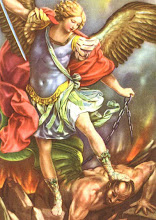The Jesus Conspiracy
The Da Vinci Code begins with the murder of a French museum curator named Jacques Sauniere. A scholarly Harvard professor and a beautiful French cryptologist are commissioned to decipher a message left by the curator before his death. The message turns out to reveal the most profound conspiracy in the history of humankind: a cover-up of the true message of Jesus Christ by a secret arm of the Roman Catholic Church called Opus Dei.
Before his death, the curator had evidence that could disprove the deity of Christ. Although (according to the plot) the church tried for centuries to suppress the evidence, great thinkers and artists have planted clues everywhere: in paintings such as the Mona Lisa and Last Supper by da Vinci, in the architecture of cathedrals, even in Disney cartoons. The book’s main claims are these:
The Roman emperor Constantine conspired to deify Jesus Christ.
Constantine personally selected the books of the New Testament.
The Gnostic gospels were banned by men to suppress women.
Jesus and Mary Magdalene were secretly married and had a child.
Thousands of secret documents disprove key points of Christianity.
Brown reveals his conspiracy through the book’s fictional expert, British royal historian Sir Leigh Teabing. Presented as a wise old scholar, Teabing reveals to cryptologist Sophie Neveu that at the Council of Nicaea in a.d. 325 “many aspects of Christianity were debated and voted upon,” including the divinity of Jesus.
“Until that moment in history,” he says, “Jesus was viewed by His followers as a mortal prophet … a great and powerful man, but a man nonetheless.”
Neveu is shocked. “Not the Son of God?” she asks.
Teabing explains: “Jesus’ establishment as ‘the Son of God’ was officially proposed and voted on by the Council of Nicaea.”
“Hold on. You’re saying Jesus’ divinity was the result of a vote?”
“A relatively close vote at that,” Teabing tells the stunned cryptologist.2
So, according to Teabing, Jesus was not regarded as God until the Council of Nicaea in a.d. 325, when the real records of Jesus were allegedly banned and destroyed. Thus, according to the theory, the entire foundation of Christianity rests upon a lie.
The Da Vinci Code has sold its story well, drawing comments from readers such as “If it were not true it could not have been published!” Another said he would “never set foot in a church again.” A reviewer of the book praised it for its “impeccable research.”3 Pretty convincing for a fictional work.
http://y-jesus.com/monalisa_2.php
lunedì 28 gennaio 2008
Iscriviti a:
Commenti sul post (Atom)







Nessun commento:
Posta un commento